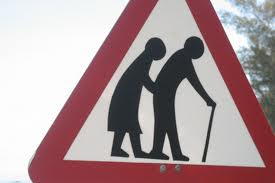Increases in the state pension age will lead to the creation of a new “limbo zone” in which many workers are too young to draw their pension but too old and infirm to work.
The TUC issued the warning on releasing an analysis of official labour market data, which revealed that a mere 54% of men aged 60 to 64 and only 62% of women aged 56 to 60 were in employment.
It found that nearly two in five of those approaching the SPA were defined as economically inactive (someone who has not sought work in the last four weeks), with the main reasons given being long-term sickness and disability.
People who were formerly employed in skilled trades, heavy industry or low-skilled jobs were the most likely to fall into this category (470,325), while managers and senior officials were more likely to be inactive after having taken early retirement (375,368).
The TUC’s general secretary Brendan Barber said, while more people were working past the SPA, “often as the only way to get a decent retirement income”, a far greater number of older people were unable to work due to ill health or because they were trapped in long-term unemployment (nearly half of the total).
“Accelerating the rise in the state pension age will simply push more people into poverty. We will end up with a new limbo zone for people in their mid-60s who are too young for a pension, but too old to have any realistic chance of a job,” he added.
By raising the state pension age and “ignoring persistent health inequalities”, the government risked overseeing a “dramatic rise in pensioner poverty”, Barber said.
As a result, he called on the government to focus on tackling age discrimination, which included extending access to flexible working and supporting those who were actively seeking to re-enter the jobs market.










